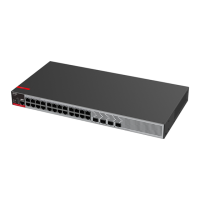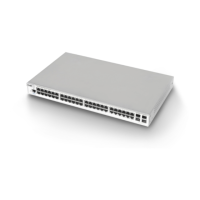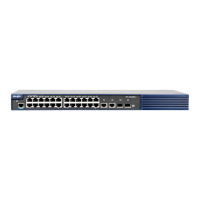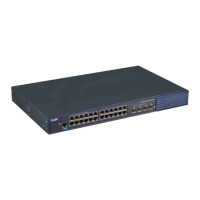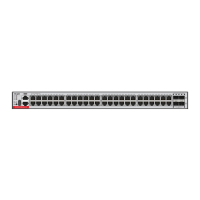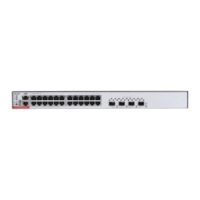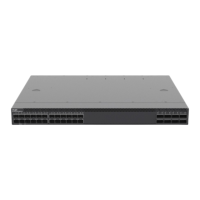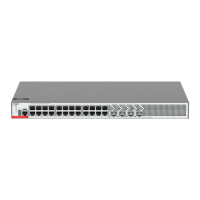Command Reference Network Connectivity Test Tool Commands
10.6 traceroute ipv6
Use this command to display all gateways passed by the test packets from the source address to the
destination address.
traceroute [ipv6 ] [ address [ probe number ] [ timeout seconds ] [ ttl minimum maximum ]
[ out-interface interface [ next-hop next-hop ] ] ]
Specifies an IPv6 address.
Specifies the number of probe packets to be sent.
Specifies the timeout time.
Specifies the minimum and maximum TTL values.
Specifies the outbound interface
Specifies the next hop IPv6 address
By default, seconds is 3 seconds, number is 3, minimum and maximum are 1 and 255.
Privileged EXEC mode: enables extended functions.
User EXEC mode: enables basic functions.
Use the traceroute ipv6 command to test the connectivity of a network to exactly locate the network
connectivity problem when the network failure occurs. To use the function domain name, configure
the domain name server. For the concrete configuration, refer to the DNS Configuration part.
The following is two examples of the application bout traceroute ipv6, the one is of the smooth
network, and the other is the network in which some gateways aren’t connected successfully.
1. When the network is connected smoothly:
Ruijie# traceroute ipv6 3004::1
< press Ctrl+C to break >
Tracing the route to 3004::1
1 3000::1 0 msec 0 msec 0 msec
2 3001::1 4 msec 4 msec 4 msec
3 3002::1 8 msec 8 msec 4 msec
4 3004::1 4 msec 28 msec 12 msec
From above result, it’s clear to know that the gateways passed by the packets sent to the host with an
IP address of 3004::1 (gateways 1~4) and the spent time are displayed. Such information is helpful
for network analysis.
2. When some gateways in the network fail:
Ruijie# traceroute ipv6 3004::1
< press Ctrl+C to break >
Tracing the route to 3004::1
1 3000::1 0 msec 0 msec 0 msec
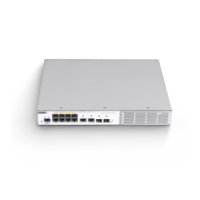
